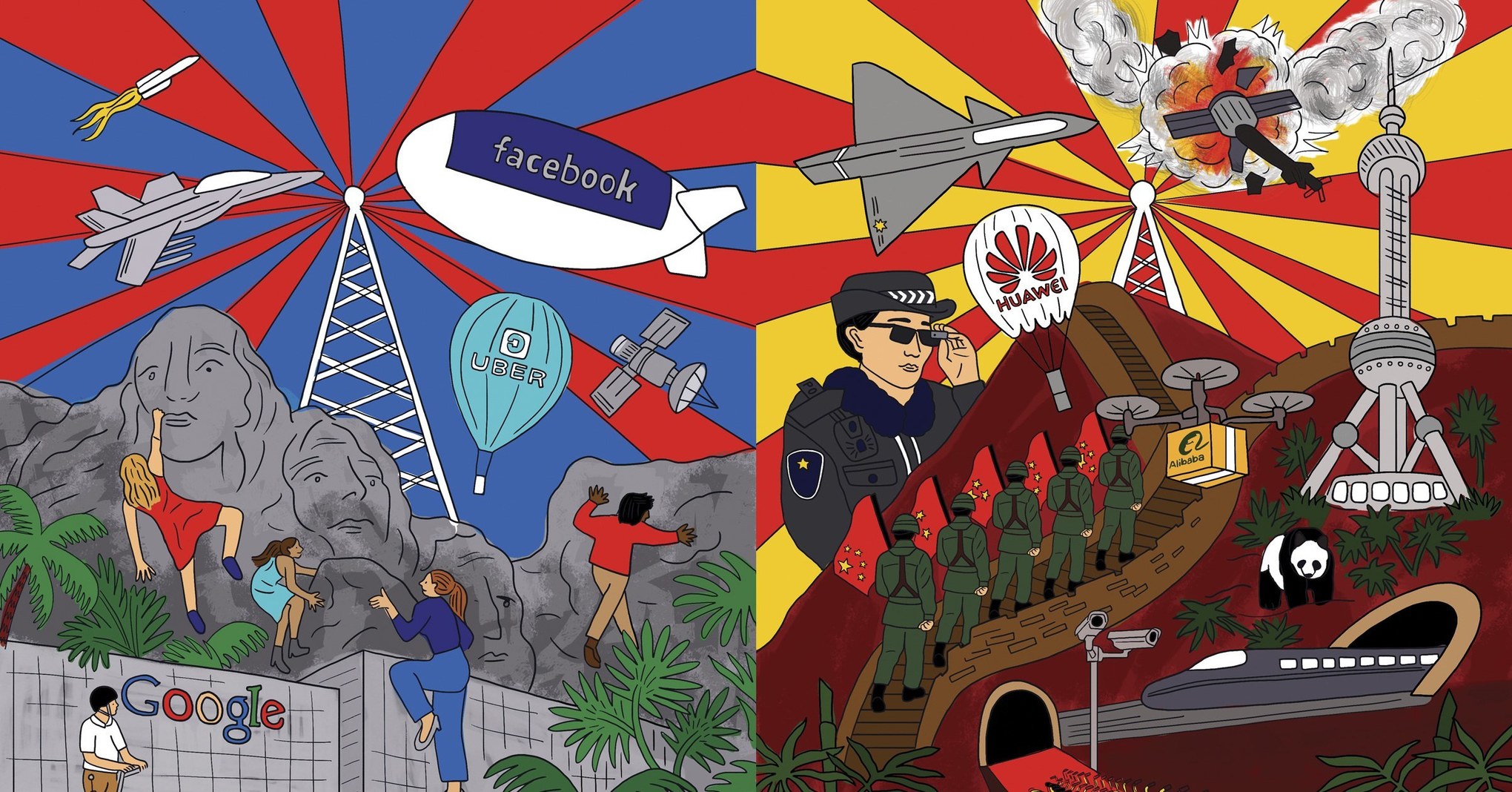Today, China doesn’t just play defense against viral dissent by redacting troublesome parts of the internet; the government actively wields technology as a tool of control. In cities across China, including in Xinjiang, authorities are trying out facial-recognition software and other AI-powered technologies for security. In May, facial-recognition cameras at Jiaxing Sports Center Stadium in Zhejiang led to the arrest of a fugitive who was attending a concert. He had been wanted since 2015 for allegedly stealing more than $17,000 worth of potatoes. China’s Police Cloud System is built to monitor seven categories of people, including those who “undermine stability.” The country also aspires to build a system that will give every citizen and every company a social credit score: Imagine your FICO score adjusted to reflect your shopping habits, your driving record, and the appropriateness of your politics.
The fundamental force driving this change—this pivot from defense to offense—is a shift in how power flows from technology. In the beginning, the communications revolution made computers affordable to the masses. It wired devices together in a giant global network and shrank them down to the size of your hand. It was a revolution that empowered the individual—the lone programmer with the power to create in her pocket, the academic with infinite research at his fingertips, the dissident with a new and powerful way of organizing resistance.
Today’s stage of the digital revolution is different. That supercomputer in your pocket is also a homing device. It’s tracking your every “like,” keeping a record of everyone you talk to, everything you buy, everything you read, and everywhere you go. Your fridge, your thermostat, your smartwatch, and your car are increasingly sending your information back to headquarters too. In the future, security cameras will track the ways our eyes dilate, and sensors on the wall will track our body temperature.
In today’s digital world, in China and the West alike, power comes from controlling data, making sense of it, and using it to influence how people behave. That power will only grow as the next generation of mobile networks goes live. Remember how it felt like magic to be able to browse real web pages on the second-generation iPhone? That was 3G, the mobile standard that became widespread in the mid-2000s. Modern 4G networks are several times faster. 5G will be vastly faster still. And when we can do things faster, we do them more, which means data piles up.
It’s already hard for most people to comprehend, much less control, all the information collected about them. And the leverage that accrues to data aggregators will just increase as we move into the era of AI.
Sourced through Scoop.it from: www.wired.com



Leave A Comment